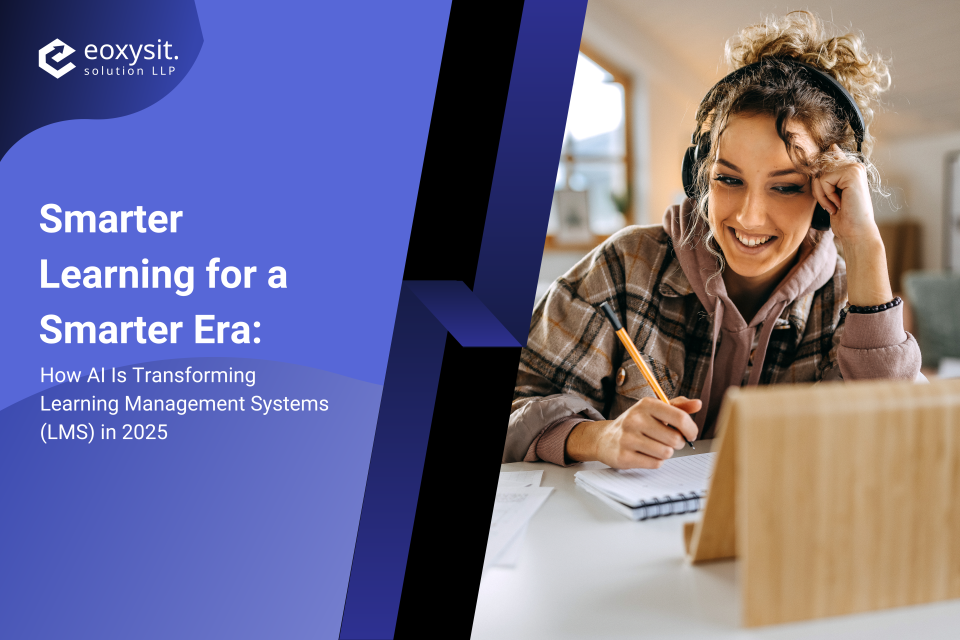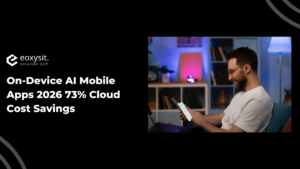Smarter Learning for a Smarter Era: How AI Is
Transforming Learning Management Systems
(LMS) in 2025
From Static Systems to Intelligent Learning
2025 has marked a turning point in how organizations and educators think about digital learning. Traditional Learning Management Systems—designed for centralized course delivery and basic progress tracking—have evolved into intelligent platforms capable of delivering hyper
personalized, engaging, and automated education experiences. At the heart of this transformation is artificial intelligence AI , which is radically improving user outcomes, course efficacy, and organizational agility on a global scale.
What Sets AI-Powered LMS Apart?
Adaptive, Personalized Learning Paths
AI algorithms analyze every learnerʼs history, skill gaps, and engagement style to build tailored educational journeys. Every course, quiz, and assignment adjusts dynamically—unlocking harder content for advanced users, focusing on fundamentals for those who need it, and surfacing extra resources for in-depth study. This adaptive approach ensures greater retention, higher satisfaction, and measurable improvements in skill mastery.
Automation of Routine and Administrative Tasks
AI-powered LMS platforms automate course enrollment, attendance tracking, notifications, and even grading. This allows trainers and administrators to focus on strategic work—course design, human coaching, or competency mapping. Intelligent chatbots answer routine learner questions in real time, cutting support tickets and increasing engagement.
Data-Driven Feedback and Predictive Analytics
By processing massive datasets in real-time, AI extracts actionable insights for educators. Predictive analytics identify disengaged or at-risk students, enabling timely interventions—improving retention and outcomes. Visual dashboards give leaders clarity over whatʼs working, which cohorts need support, and how organizational skills are evolving.
Top AI Features Shaping LMS in 2025
- Emotion Recognition: Analyze learner sentiment from facial expressions or interactions to adjust pace and offer encouragement—delivering truly human-centered learning.
- Dynamic Content Curation: AI matches lessons, videos, and quizzes to a learnerʼs performance and preferences, keeping content relevant and timely.
- Generative Content Creation: Modern LMS platforms use AI to generate new test questions, create microlearning assets, or adapt existing lessons for different proficiency levels.
- Real-time Feedback and Microlearning: Learners get immediate assessment and improvement tips, and can break studies into short, personalized modules for efficiency.
- Administrative Simplification: AI handles scheduling, reminders, policy tracking, and compliance management—reducing manual admin by up to 65%.

Use Cases Across Industries
- Corporate Training: Accelerated upskilling, compliance automation, and skills-gap analysis, helping organizations adapt to fast-changing roles and technologies.
- Higher Education: Personalized remediation, adaptive testing, group collaboration, and retention analytics for colleges and universities.
- Healthcare: AI-powered LMS ensures consistent credentialing, just-in-time learning for clinicians, and scenario-based simulations.
- Retail & Field Services: Mobile LMS with AI-driven experience for remote certification, gamification, compliance, and product training.
Tackling the Challenges—And Unlocking the Benefits
Ethical AI, Privacy, and Transparency
As LMS systems collect vast amounts of learner data, robust privacy safeguards and ethical AI practices are now non-negotiable. 2025ʼs top platforms explain AI decisions, offer user and administrator controls, and ensure compliance with global standards (like GDPR and CCPA).
Trust, Accuracy, and Risk Management
A critical consequence: AI sometimes “hallucinates,” producing plausible answers that may be inaccurate, misleading, or even harmful—especially in healthcare and finance. Proactive brands must not only optimize for inclusion but also monitor for errors and respond quickly to protect reputation.
Integration and Change Management
Introducing AI into established LMS ecosystems requires technical and cultural change. Organizations increasingly invest in user training, transparent communication, and skilled AI partners to capture full value for learners and the business.
The Business Impact and Market Outlook
The global market for AI-powered LMS platforms will surpass $28B in 2025, growing at a double-digit CAGR. Research from IBM and Gartner highlights that workforce upskilling, reskilling, and knowledge agility—enabled by AI—are viewed as key factors in competitive advantage.
- Large enterprises and forward-thinking SMEs are investing in generative AI and predictive analytics for microlearning, compliance, and leadership development.
- AI-driven skills mapping and personalized learning are closing the gap between workplace needs and available talent faster than ever.

Conclusion: A Smarter Learning Era
AI has moved the LMS industry from a system of record to a system of innovation, personalization, and actionable outcomes. In 2025, the organizations that lead in learning no longer do so by assigning modules—but by empowering individuals, automating administration, and continuously optimizing content through real-world data.
As education and corporate training pivot to meet the demands of a digital, rapidly-changing economy, AI-powered LMS solutions will be central to success—for students, professionals, and businesses alike.





